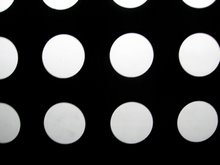The ideal is always that intelligence not be mixed with politics. When these two come together in any meaningful way, it is nearly always a very dangerous combination. The reality, however, is that the CIA cannot be naive to the political scene in Washington. While the Agency studies politics in nearly every locale across the world, it cannot overlook the political scene which it serves: Washington D.C. For better or for worse if the CIA is going to do its job of providing policy makers with accurate, unbiased information successfully, the CIA has to deal with the political landscape of Washington.
To this end, the choice of Leon Panetta is a good one. As an intelligence outsider and an experienced politician, Panetta could provide a successful contrast to the career intelligence personnel he leads. Traditionally, the Director of Central Intelligence (DCI) has been a political appointment and the real power in intelligence matters lies with the deputy directors. It's the DCI that represents the CIA within the circles of high-ranking politicians and other figures within Washington. As someone who knows this political world, Panetta will be a good representative.
In terms of defending the Agency against its critics within the Congress and elsewhere, Panetta will also be a good choice. What really got me thinking about this topic was this article by Robert Baer, a former CIA field officer. In the article, Mr. Baer makes the excellent point that:
"The CIA will need Panetta to hold off the Senate and House intelligence committees, which are gearing up to rip into the CIA for the past eight years of renditions, secret prisons and bad intelligence on Iraq. Mistakes aside, the last thing the CIA needs is another round of overly intrusive congressional hearings like those that so badly damaged the agency in the 1970s. If today's Congress were to deliver a coup de grâce to the CIA, the Pentagon would effectively be the nation's only intelligence agency."The way the CIA was muzzled and ostracized during the 1970s was devastating and the effects of which are still felt so many years later. Despite mistakes made, the CIA can't go through another humbling like that, an impotent foreign intelligence service is exactly what we don't need in times like these.




No comments:
Post a Comment